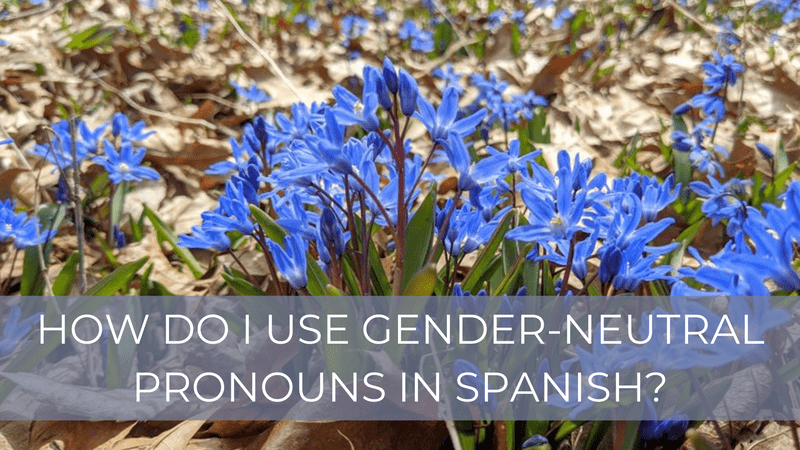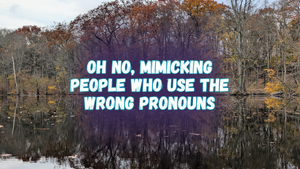Bad Bunny, popular Puerto Rican singer, is playing the next Superbowl halftime show, a choice that some conservatives don't like, especially since he's announced he's doing the show in Spanish.
It's worth reminding everyone that Puerto Rico is part of the United States, Bad Bunny is an American musician, and in the United States, over 41 million people speak Spanish.
Bad Bunny talked about his upcoming Superbowl performance, in Spanish,while hosting Saturday Night Live, “It’s more than a win for myself, it’s a win for all of us [Latinos and Latinas]. Our footprints and our contribution in this country, no one will ever be able to take that away or erase it.”
And then in English, “If you didn’t understand what I just said: You have four months to learn.”
Check out Bad Bunny's Tiny Desk Concert on YouTube:
Bad Bunny is an ally. In 2020, he performed in drag for one of his music videos, "Yo Perreo Sola" - "I dance/grind alone." The comments on this music video basically all make a joke about Bad Bunny not needing any backup dancers because he dances alone, as the song says. He is his own backup dancer in the video. Surprisingly wholesome.
Let's learn some queer Spanish words together! And don't worry, this isn't going to be super hard. Many LGBTQ+ Spanish words are quite familiar or English loanwords.
Spanish words to talk about being LGBTQ+
LGBT+ - the same in Spanish, pronounced "ele je be te más"
gay - gay (you can say, "yo soy gay," for example)
lesbian - lesbiana
bisexual - bisexual
asexual - asexual
intersex - intersexual
genderfluid - género fluido
partner / boyfriend / girlfriend - pareja / novio / novia
coming out - salir del clóset
pride - orgullo
transgender - transgénero (or just "trans")
I'm a trans man / I'm a trans woman - soy un hombre trans / soy una mujer trans
I'm trans - soy trans
I'm a girl / I'm a boy - soy una chica / soy un chico
non-binary - no binario / no binaria (Before you lose your mind over this one, please note that this word has a grammatical gender, as do many words in Spanish. For example, "la persona no binaria" has a feminine grammatical gender, but that's not saying anything about the actual gender of the person. "La persona" is how you say "the person," regardless of whether the person in question is a man, woman, non-binary person, etc. Another example of a feminine adjective that says nothing about the gender of the individual: "Él es una persona simpática." - "He is a nice person." An example of the masculine is "el género no binario" - "the non-binary gender")
I am non-binary - This is where it gets a little tricky. You can say "yo soy no binario," the gender-neutral/masculine option. Or "yo soy no binaria," the feminine option. Or "yo soy no binarie" which is a newer gender-neutral option which some Spanish speakers use and some don't like.
Two-Spirit - dos espiritus. This is a direct translation of "Two-Spirit" and means the same thing, a term which Indigenous people can use to identify their gender and/or sexuality.
The words I've shared with you here are relatively respectful. But just like in English, don't run down the street screaming these words. Words are words, but context is what makes them respectful.
A lot of slang words, especially for gay men and cross-dressers, are insulting or slurs in Spanish (just like in English). If you want to know what you're being insulted for, feel free to look these up on your own time.
How to use the singular "they" in Spanish
Check out my article all about alternatives to gendered pronouns in Spanish:

Learning respectful words helps our community
The sense I get from talking to some Spanish speaking folks is that being LGBTQ+ is not discussed much in some families and communities.
Just like some English speakers, some Spanish speakers may not be comfortable with the words to start a respectful conversation about being LGBTQ+.
Knowing the words and how to refer to our community is a great first step to learning about LGBTQ+ identities and becoming comfortable talking about them.
What LGBTQ+ resources would you like to see, whether you're fluent in Spanish or just learning? Please let us know in the comments below.






